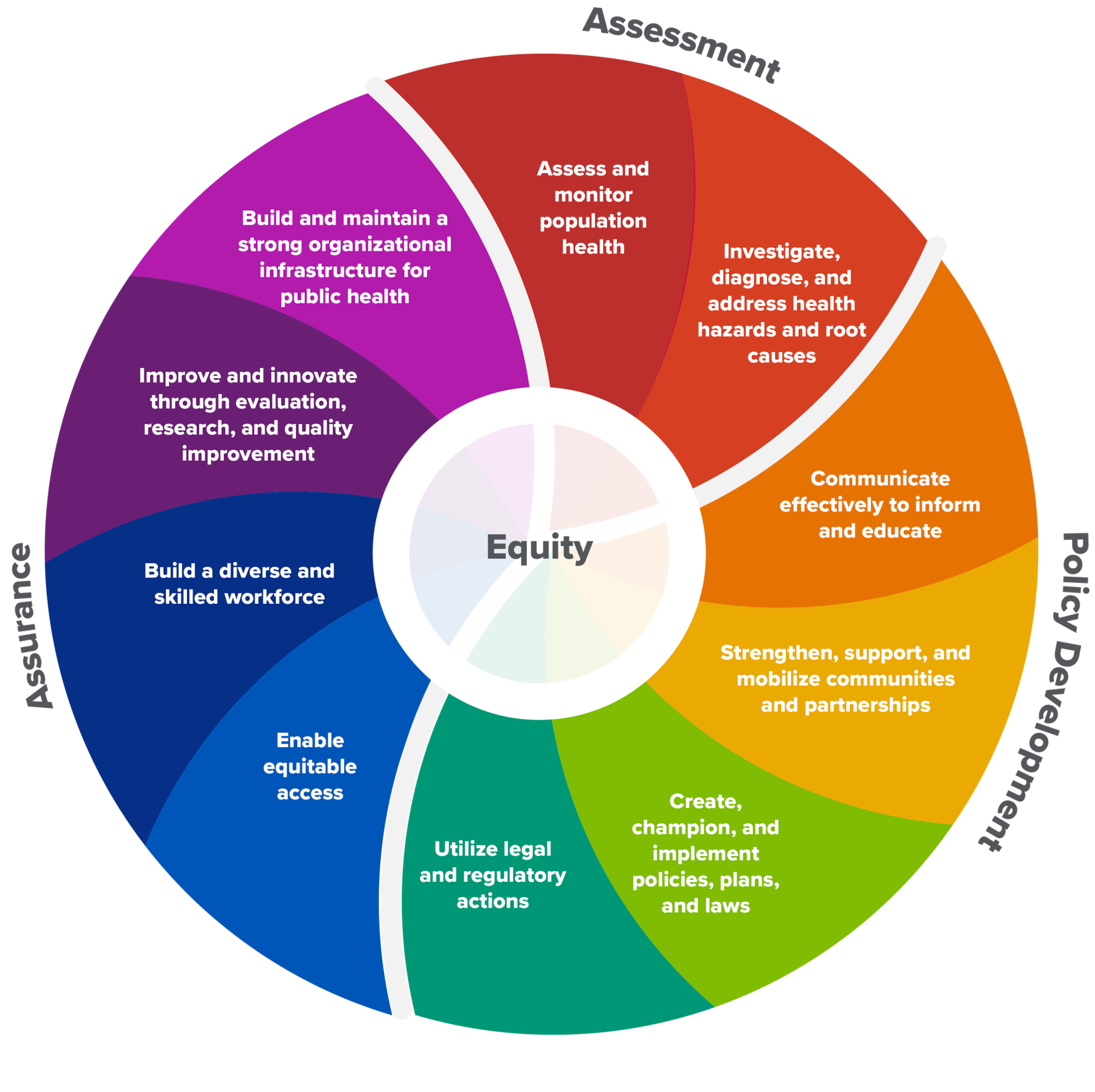At a glance
Environmental public health programs help deliver the 10 Essential Public Health Services in their communities. These efforts also link to and support broader public health initiatives such as public health accreditation.

Framework for public health
The 10 Essential Public Health Services provide a framework for public health and promote the health of all people in all communities. To achieve equity, these services were revised in 2020. Revisions actively promote policies, systems, and overall community conditions that enable optimal health for all and seek to remove systemic and structural barriers that have resulted in health inequities. These services:
- Assess and monitor population health status, factors that influence health, and community needs and assets
- Investigate, diagnose, and address health problems and hazards affecting the population
- Communicate effectively to inform and educate people about health, factors that influence it, and how to improve it
- Strengthen, support, and mobilize communities and partnerships to improve health
- Create, champion, and implement policies, plans, and laws that impact health
- Utilize legal and regulatory actions designed to improve and protect the public's health
- Assure an effective system that enables equitable access to the individual services and care needed to be healthy
- Build and support a diverse and skilled public health workforce
- Improve and innovate public health functions through ongoing evaluation, research, and continuous quality improvement
- Build and maintain a strong organizational infrastructure for public health

Information for leaders and program staff
This information on how environmental public health programs deliver the 10 Essential Public Health Services is for health department leaders, environmental health leadership, accreditation and performance improvement staff, and other program staff.
Public health accreditation
This information provides examples of activities that could contribute to health department accreditation or reaccreditation. Examples are not intended to provide all definitive linkages between the Public Health Accreditation Board (PHAB) standards and environmental health activities. Completion of these activities does not guarantee conformity to PHAB documentation requirements.
These examples relate to PHAB Version 2022 Standards and Measures for Initial Accreditation. This resource can also be valuable for health departments accredited under Version 1.5 and those seeking reaccreditation.
More Information
- PHAB
- 10 Essential Public Health Services Toolkit (PHAB)
- 10 Essential Public Health Services
- Environmental Public Health Performance Standards
*Examples are not intended to provide all definitive linkages between PHAB standards and environmental health activities. Completion of these activities does not guarantee conformity to PHAB documentation requirements.
Acknowledgments
These insights into applying the 10 Essential Public Health Services to environmental public health practice move away from our previous approach of having a separate set of essential services specific to environmental health programs.
These services and the 2004 Environmental Public Health Performance Standards the services were based on served as the foundation for helping environmental health programs engage in performance improvement activities for many years. These standards are still available for programs who want to use them.
